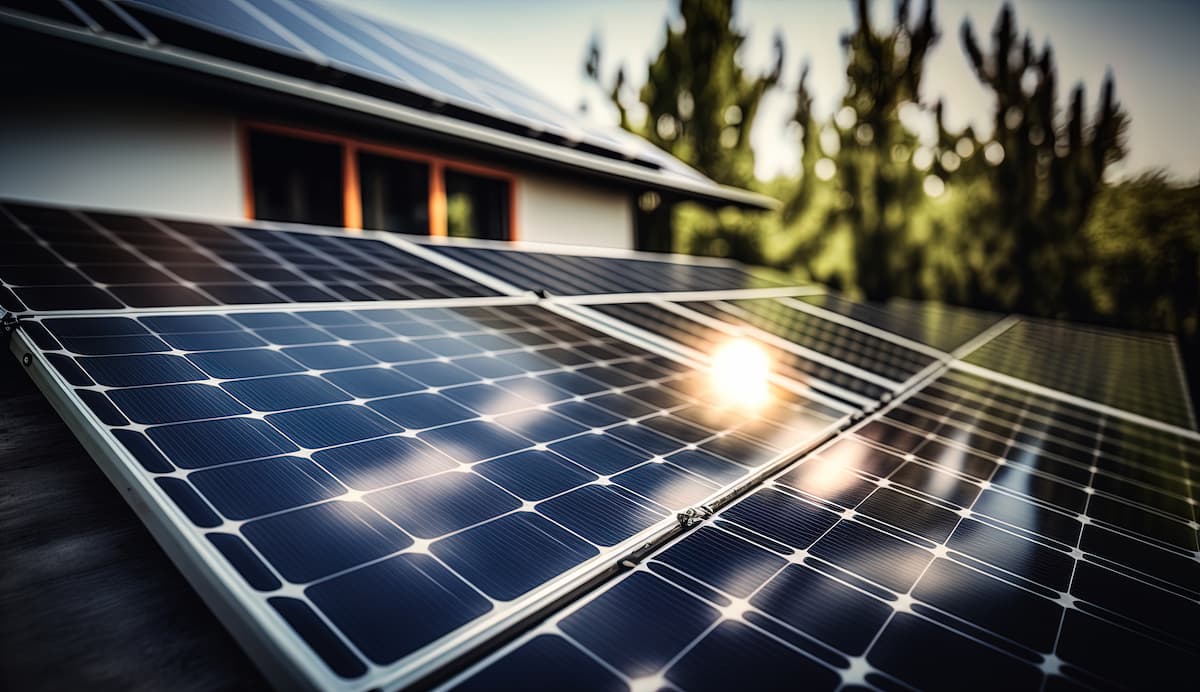In the continuous search for sustainable and environmentally friendly energy sources, solar panels have stood out as one of the best and most promising options. These devices, also known as solar panels, harness sunlight to generate electricity, offering a series of benefits for both individuals and the planet. Below, at Lisbona Oil, as a home heating oil company in Granada, we will show you some of the most notable advantages of solar panels.
What are solar panels?
Solar panels, also known as photovoltaic solar panels, are devices designed to capture solar energy and convert it into usable electricity. They work through photovoltaic cells, generally made of silicon, which generate an electric current when they receive sunlight. This process is known as the photovoltaic effect. Solar panels are used in various applications, from powering homes and businesses to providing electricity in remote areas.
The implementation of solar panels can be a great advantage. By incorporating renewable energy, companies can reduce operating costs and improve their commitment to environmental sustainability. Additionally, by producing their own clean energy, they reduce dependence on non-renewable sources and minimize their carbon footprint, an increasingly valued aspect in today’s market.
The solar panel market has advanced significantly, with options ranging from small, low-cost systems to large-scale installations. As technology develops, solar panels become more accessible and efficient, making their implementation a viable option for various industries.
Advantages of solar panels
Choosing solar panels as an energy source provides several important advantages. Here are the most notable ones:
1. Renewable and Sustainable Energy
One of the main advantages of solar panels is that they use an inexhaustible energy source: the sun. Unlike non-renewable resources such as fossil fuels, solar energy is a clean and sustainable source that does not deplete natural resources and does not emit greenhouse gases, thus contributing to the fight against climate change.
2. Reduction of Dependence on Fossil Fuels
By adopting solar energy, dependence on fossil fuels, which are finite and significantly contribute to environmental pollution, is reduced. Lowering the demand for these resources helps preserve air quality and eases pressure on ecosystems affected by oil and gas extraction.
3. Long-Term Savings
Although the initial investment in solar panel installation may seem significant, in the long run, it represents substantial savings on electricity bills. Homeowners and businesses that choose solar energy often experience a significant decrease in energy expenses as they generate their own electricity and, in some cases, can even sell surplus energy back to the grid.
4. Incentives and Subsidies
Many governments and organizations offer financial incentives to encourage the adoption of solar energy. These can include tax credits, grants, and low-interest financing programs. These incentives not only make the initial investment more affordable but also promote the transition to cleaner energy sources.
5. Positive Impact on Property Value
Installing solar panels can also increase property value. Many home buyers find properties with solar energy systems attractive, as they represent a long-term investment and reflect a commitment to environmental sustainability.
6. Energy Independence
Solar panels provide the ability to generate electricity in a decentralized manner, meaning energy can be produced at the point of consumption. This reduces the need for long-distance energy distribution and decreases losses associated with long-distance electricity transmission.
7. Evolving Technology
As professionals in solar panel installation in Málaga, we know that solar technology continues to advance, meaning that solar panels are becoming more efficient and affordable over time. Advances in research and development improve solar energy capture, extend panel lifespan, and reduce production costs.
Tips for installing solar panels
Installing solar panels can be an excellent investment to reduce energy costs and contribute to environmental care. Here are some key tips for a successful installation in a fuel company:
- Assess the location: Make sure the place where you plan to install the solar panels receives enough direct sunlight. The ideal orientation is south-facing (in the Northern Hemisphere) to maximize sun exposure throughout the day. Avoid areas shaded by buildings, trees, or other structures.
- Consider energy capacity: Calculate the amount of energy your company needs daily and the number of panels required to meet this demand. This includes reviewing historical energy consumption and planning a system that supports it.
- Consult with professionals: Solar panel installation requires specific knowledge to ensure efficiency and safety. Working with a certified installer is crucial to ensure the system meets local quality and safety standards.
- Review government incentives: Many countries offer grants, tax credits, and other incentives for renewable energy installation. These programs can help reduce initial installation costs and speed up return on investment.
- Regular maintenance: Although solar panels are low-maintenance, they require periodic inspections to ensure proper operation. Keeping panels clean and free from debris is essential to maximize efficiency and extend their lifespan.
In summary, solar panels represent a smart and sustainable investment. As a home heating oil company, we care about reducing carbon footprints and long-term economic savings. Adopting solar energy is a decision that benefits both individuals and the environment. With the continuous evolution of solar technology and government support, this renewable resource is becoming an increasingly viable and attractive solution for a sustainable energy future.
